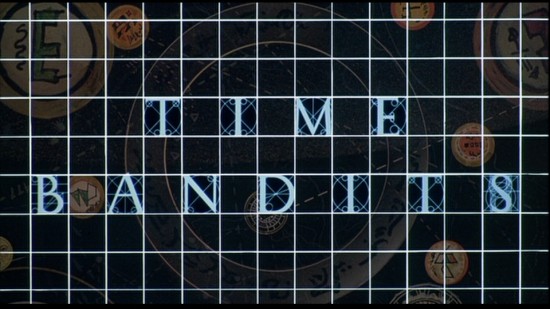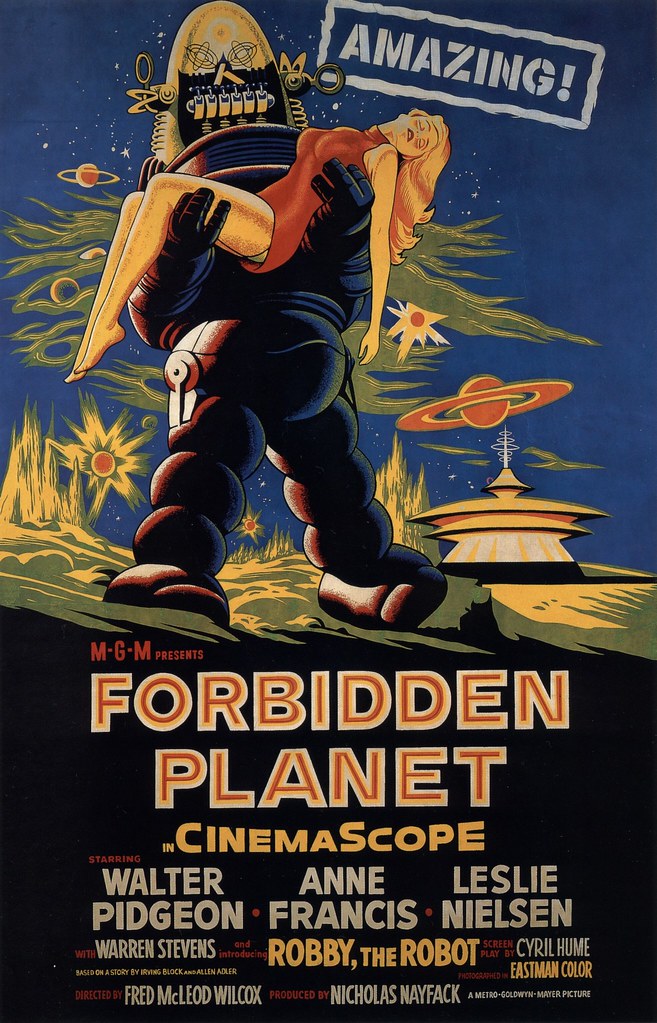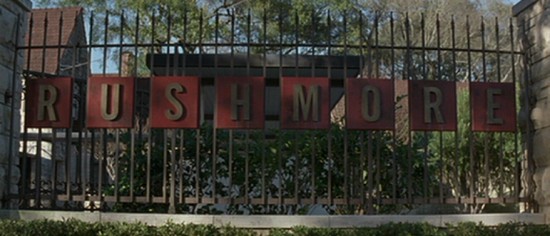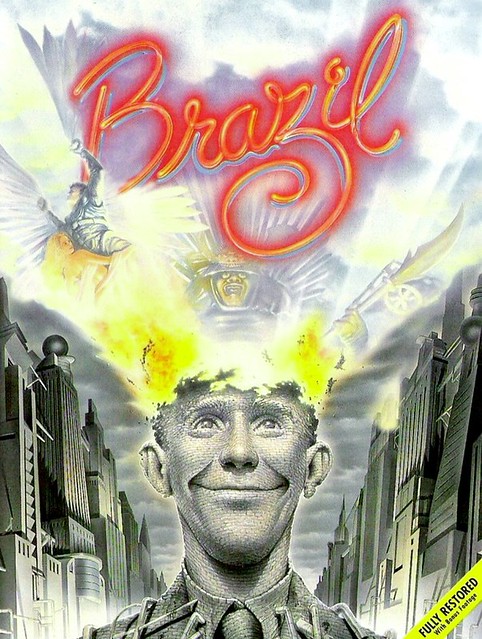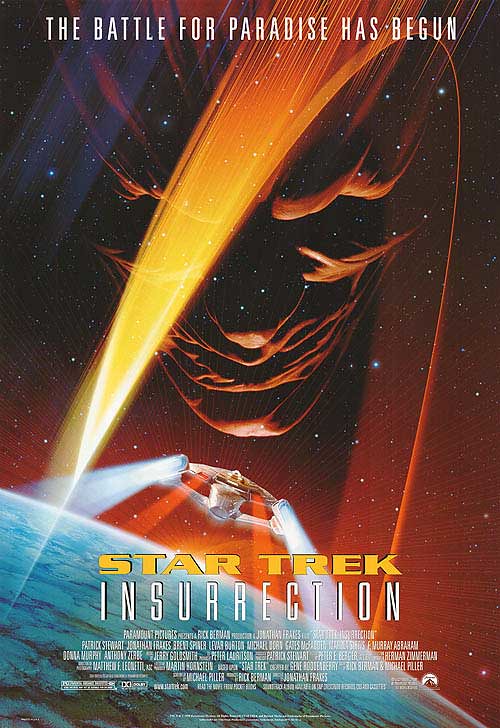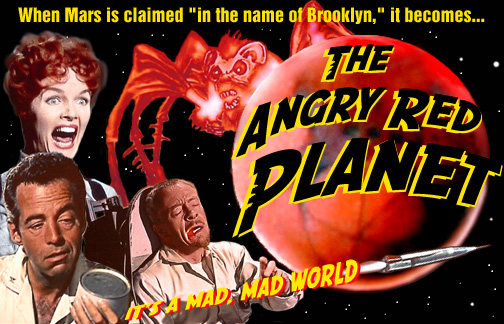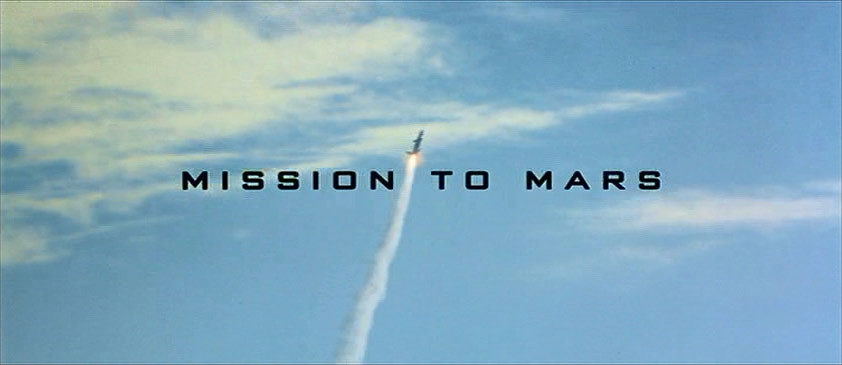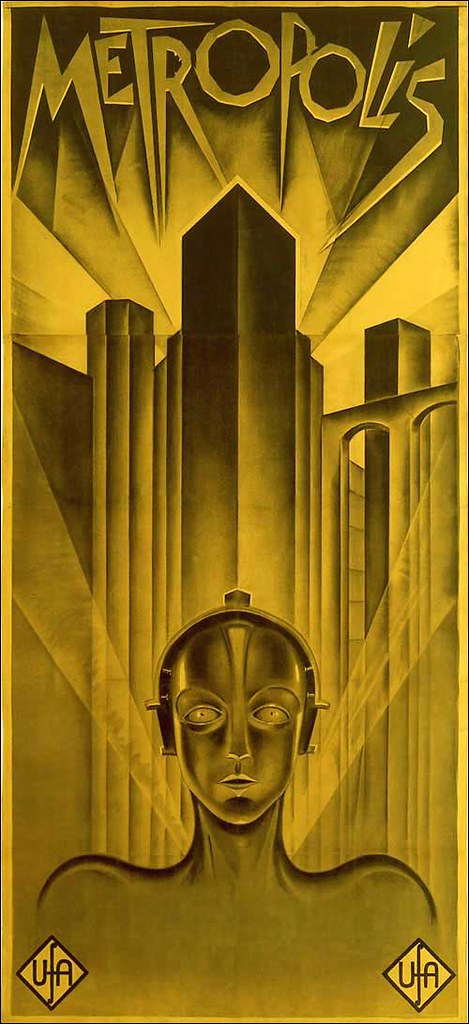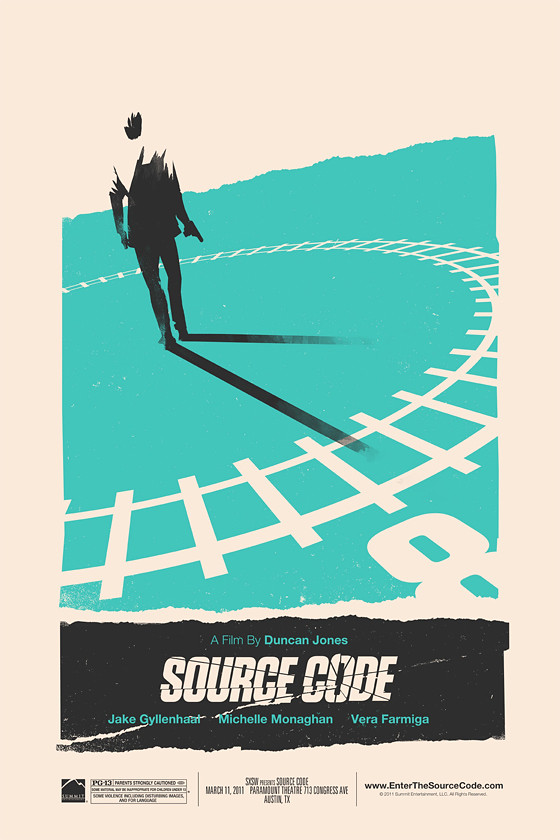
I feel mixed about this film, but more positive than negative. It leaves you a little dissatisfied, doesn't it? (Everything else I say is blatant
SPOILER territory, so don't blame me if you keep reading!) It comes on so goddamn strong and fast, an on-the-train thriller where you have eight minutes to explore alternate histories before the moment collapses on itself. Every eight minutes a brutal explosion; then you flash back to a mysterious chamber and get a new piece of the puzzle; then you have another eight minutes to abuse the consequence-free nature of your impending death while you hunt for the bomber, and then another brutal explosion. The first half moves so fast and smart -- Captain Stevens even begins bucking the rules about as fast as we can infer them -- and the the midpoint (when the hero's quest traditionally evolves and changes directions) is such a sharp and unorthodox shift, veering away from "catch the bad guy in a contained space (and time, no less!)" thriller into a much vaguer, existential dilemma of causality and possibility. It's an interesting direction, and comes naturally (almost inevitably, really) out of Stevens's character and situation, but the stakes and pacing and emotional weight of it shift so drastically, it's easy to feel like the story veered away and left you cruising on an untaken path. (Confession: I struggled to work that weak-ass metaphor around
not making any kind of a train pun/analogy.)
I think the reason this feels odd -- apart from some slippery metaphysical and existential questions the end brings up, but one thing at a time -- is because the whodunit chase that starts the story off with a bang gets wrapped up tight somewhat easily and sooner than you expect, and the second half of the story (Stevens hoping to get back onto the train one last time, to set everything right; and Goodwin deciding to honor Stevens's last wish and euthanize him) feels a little like an extended denouement. Once the authorities have Derek Frost in their hands, it feels like there's a missed beat, a moment where the stakes and the urgency drop too steeply, and even though it's still Stevens's life at risk and even though there's still the chance of saving everyone who died in the first, "unstoppable" train explosion, it just feels kind of arbitrary -- I guess I just didn't buy that Stevens wanted it enough? I buy that he insisted he could change the past, and I certainly buy that one more eight-minute try, in a more real-feeling body and world, would be preferable to chilling in that weird chamber and knowing you weren't really there, or waiting to cease existing altogether. But I don't buy that he had any chemistry with Christina (for all the natural chemistry Michelle Monaghan shared with Robert Downey Jr in
Kiss Kiss Bang Bang, there was none of that here... none at all) and I don't think he made a compelling enough case for Captain Goodwin to go against protocol so boldly in his favor.
Which I guess brings me to my last real "beef" with the story, which is that, aside from Colter Stevens, nobody in the story seems to react like real people at any point,
especially Christina. I kept waiting for the explanation to be that Stevens wasn't visiting actual pasts but some distortion based on the teacher Sean's recollections or perspective, or something. I kept waiting for it to be deliberate, another clue to the truth of his situation, that she kept reacting so oddly and passively, that others kept allowing him to dominate with only a passing gesture toward resistance -- the way it feels when you suddenly realize you're dreaming and you begin acting accordingly, and "people" resist a little, and then go with it, whatever "it" is. So the further in we went, as we learned that it was all real, more or less, the more that kind of "disconnect" felt off-putting. And outside the Source Code, Goodwin and Dr. Rutledge didn't feel much more "real" in their development, either. They both had subtle character moments, tells that were nicely understated but still filled in some story, but they just never felt fully dimensional or real to me, which hurt the story a little.
Mostly, that all boils down to a story that's plot-driven, where the characters were designed to suit the needs of the story and to keep the story moving where it wanted to go, rather than the story going where the characters wanted it to go. The arbitrariness of the last half which should have felt natural and organically unpredictable; the disconnect and detached passiveness of everyone except our hero throughout; these people were who they needed to be and made the choices they needed to make so that we could tell this specific story in this specific way. (It's the exact same thing I've been seeing in other half-dissatisfying science fiction films I've watched lately, both
newer films and
older ones.)
But despite all of this, I did kind of like this movie, and I'd definitely consider seeing it again. It's smart in its selection of detail and paucity of exposition (and what exposition the story does have boils down to unnecessary and unscientific silliness, like a scientist talking to a child rather than a lot of distracting technojargon and arbitrary rulemaking), and it doesn't waste time going through the motions just so the audience can get comfortable in the world: it assumes you're smart enough to keep up, and it knows you'll be one step ahead of the confused character, because this isn't your first rodeo. You've seen virtual worlds, time travel, train-thrillers, ticking time bombs, and
Quantum Leap; just because Stevens doesn't know what's going on doesn't mean you don't, and that's smart of the story to acknowledge. By comparison, I think I like
Source Code a good deal more than
Inception -- though both films feel a lot more engaging in their first half and a lot more dry or sparse in their second (
Source Code loses the lit-fuse urgency and strays into "what's it all mean?" territory;
Inception strays from the surreal and unpredictable into the too literal and unimaginative, which runs counterintuitive to what you expect a "dream within a dream" to be like).
That was a lot more than I expected to say. I didn't even get the loose existential ends the story leaves us with. So, briefly: If Stevens gets to keep going in Sean's body just because he changed the timeline, what happens to Sean's consciousness? Where is Sean? Further, if Stevens's consciousness is being transmitted into the past from several hours in the future, and he creates a parallel timeline where the body he's transmitted into doesn't die, and he can continue in perpetuity in this new body, is his consciousness still dependent on his crippled, barely-living body in the Beleaguered Castle labs? The film seems to imply yes, but does that mean his mind is technically living perpetually
x hours
behind his body -- that, effectively, his body is in the future? More complicated: is "his" body, his version of his body, in the unaltered timeline, still continuing? Is Stevens's mind tethered to a different reality, at a different temporal point, and both are moving along their permanently-distinct paths until one or the other dies? Will Sean return to his body if they shut off Stevens's body, or will Sean's body drop dead -- or will that parallel dimension collapse upon itself? (Is it "stable?" or is it dependent on a perceptual agent and a stable tether? Do infinite universes coexist or is there a single universe capable of creating other quantum universes but only when they are being perceived by someone from the "real" universe?) I could go on and on.
The end -- the train not exploding, Stevens continuing as Sean, Goodwin receiving the email and
choosing not to initiate the program in the first place -- all circles back on itself in a way that's interesting and a little mindbending, and it asks a lot more questions than it answers. And I do think it's smart to leave those things unaddressed, but it's hard to say whether I should be generous and praise it for a wildly open-ended conclusion, or be critical and call the ending inconsistent and messy. I guess, as a fan of open-endedness and ambiguity in storytelling, I fall into the former camp, but skeptically so.
Moon was a balls-out unimpeachable example of thoughtful, character-driven "hard" science fiction, a tight package and a closed-circuit of a story that implied a much richer world beyond every edge of the frame. In a similar vein,
Source Code is more of a tricky, slippery idea-driven/plot-driven piece of entertaining science fiction that splits the difference between "soft" and "hard." It's nowhere near as simplistic and over-literal as
Avatar or
Inception, but on the other hand it's not as elegant and sharp as
Moon or
District 9, for example. Basically, it's a story that seems fun to think about, but you get the idea that, unlike Stevens, if you stray too far outside the frame, the whole thing actually will collapse very easily.
Seen at the Regal Fox Tower.
